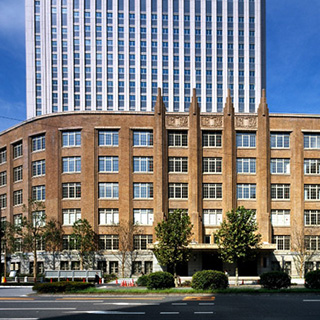Instructional guidelines for kindergartens and curriculum guidelines for elementary and middle schools were announced in March, 2008, while those for high schools were announced in March, 2009. One standpoint adopted by these instructional and curriculum guidelines is that of building sustainable societies. By providing an education in accordance with the Basic Act on Education and these instructional and curriculum guidelines, schools provide an education in alignment with the philosophy of ESD.
1.Elementary School / General Provisions
The objectives of moral education are based on the basic spirit of education stated in the Basic Act on Education and the School Education Act. Moral education is aimed at cultivating morality as a foundation for developing Japanese citizens with a proactive attitude who would apply a spirit of respect for human dignity and reverence for life in specific activities at home, school and other social situations, have a generous spirit, respect traditions and culture, love one’s country and hometown which have fostered such traditions and culture, create culture with a distinctive character, honor the public spirit, make an effort to develop the democratic society and state, respect other countries, contribute to world peace and the development of the international community and the preservation of the environment, and have interest in exploring possibilities for the future.
・Elementary School / Social Studies: Overall Objectives
To develop understanding of social life, to foster an understanding and love of their national homeland and history, and to cultivate the necessary qualities of a citizen who will shape the state and society as a peaceful and democratic member of the international community.
・Elementary School / Science: Overall Objectives
To enable pupils to become familiar with nature and to carry out observations and experiments with their own predictions, as well as to develop their problem-solving abilities and nurture hearts and minds that are filled with an affection for the natural world, and at the same time, to develop a realistic understanding of natural phenomena, and to foster scientific perspectives and ideas.
2.Middle School / Social Studies: Geography
To connect regional environmental problems and conservation efforts to trends in industry and regional development, as well as to people's everyday lives, in order to reflect on the importance of regional environmental conservation efforts in the building of sustainable societies.
・Middle School / Social Studies: Civics
To examine issues that must be resolved in order to build a better society in terms of creating a sustainable society, and to enable students to express their personal thoughts about them.
・Middle School / Science 1 and 2
To understand the importance of building a sustainable society by making scientific investigations related to the natural environment, its conservation, and the use of scientific technology in the present.
3.High School / Geography and History: World History A
To encourage a broad perspective on the creation of sustainable societies that can be asserted and shared by peoples of the world, by having students define appropriate topics on the characteristics and issues of the contemporary world, investigate the use of materials from an historical perspective, defend and debate their findings, and so on.
・High School / Geography and History: Geography A
To provide a global and local perspective on problems related to the environment, resources/energy, human manufacture, food, and housing/cities in order to foster an understanding that global issues extend beyond local areas and take different forms from one locality to the next, and to encourage reflections on the necessity of national efforts and international cooperation aimed at creating sustainable societies.
・High School / Civics: Modern Society
To deepen students' understanding of contemporary society through activities that involve investigating topics from the perspective of participants in the creation of sustainable societies, and to deepen reflection on how people exist and live in the contemporary world.
(Office of the Director-General for International Affairs)




